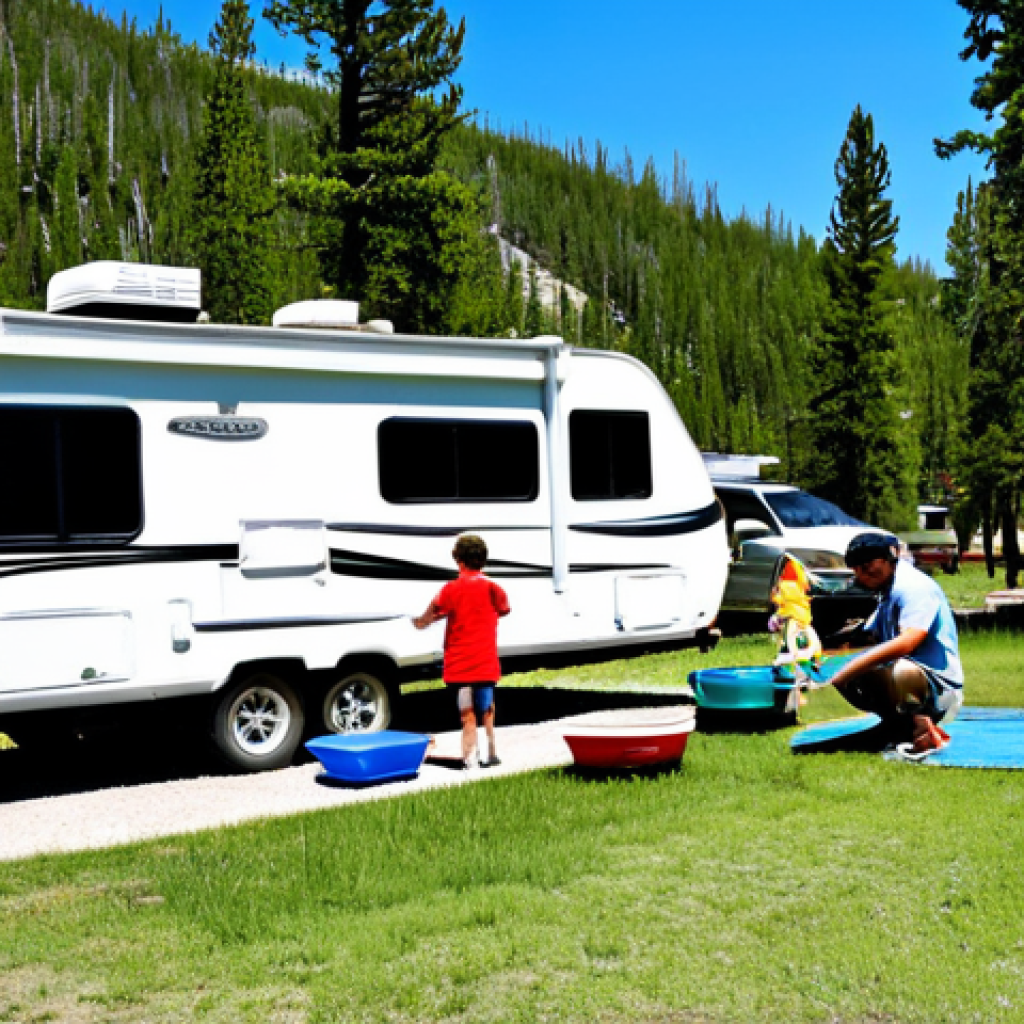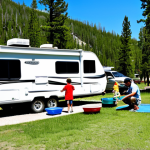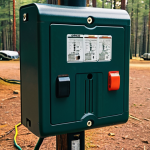Trailer camping! The very thought conjures images of crackling campfires, starlit nights, and waking up to the symphony of nature. For me, nothing beats the freedom of hitting the open road with my own little home in tow.
It’s a fantastic way to explore hidden gems, disconnect from the digital world, and create unforgettable memories with family and friends. The RV industry is booming, with more people discovering the joys of this mobile lifestyle than ever before.
But where do you even begin? Let’s dive into the nitty-gritty and explore everything you need to know!
Alright, buckle up, because we’re about to hit the road with all the essentials for making your trailer camping dreams a reality!
Selecting the Right Trailer for Your Adventures
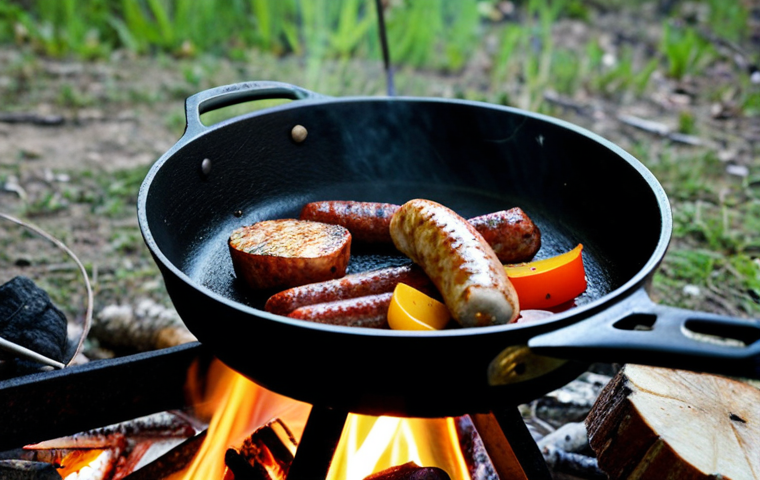
Choosing a trailer is like finding the perfect pair of hiking boots – it has to be the right fit. And trust me, there’s a trailer out there for everyone.
I remember when I first started looking, I was overwhelmed by all the options. Did I need a massive fifth-wheel with all the bells and whistles, or would a cozy teardrop trailer be enough?
Ultimately, it came down to honestly assessing my needs and travel style.
Size Matters: Matching Trailer Size to Your Tow Vehicle
This is where a lot of first-timers stumble. You can’t just hitch any old trailer to any vehicle. You *need* to know your vehicle’s towing capacity and choose a trailer that falls well within those limits.
Don’t just take the salesman’s word for it – check your vehicle’s owner’s manual and, if necessary, get your rig weighed at a truck stop. Safety first, always!
I’ve seen people try to tow trailers that are way too big, and it’s a recipe for disaster, both for your vehicle and everyone else on the road. I once witnessed a guy struggling to control a swaying trailer on a windy mountain pass – not fun!
Features and Amenities: Prioritizing Your Comforts
Do you crave a fully equipped kitchen, a spacious bathroom, and a separate sleeping area? Or are you happy with a more minimalist setup? Consider what features are essential for *your* comfort and enjoyment.
For example, if you plan on doing a lot of boondocking (camping without hookups), you’ll want to prioritize features like solar panels, a large water tank, and a composting toilet.
On the other hand, if you’ll primarily be staying at campgrounds with full hookups, you might be able to get away with a simpler trailer. Personally, I can’t live without a decent-sized fridge and a comfortable bed.
After a long day of hiking, there’s nothing better than a cold drink and a good night’s sleep!
Essential Gear and Gadgets for a Smooth Trip
Packing for a trailer camping trip is an art. You want to be prepared for anything, but you also don’t want to overload your trailer. I’ve learned this the hard way!
One trip, I packed so much stuff that I ended up having to leave some things behind at a campground. Now, I always make a checklist and try to stick to the essentials.
Must-Have Safety Equipment
This isn’t just about convenience – it’s about safety. Make sure you have a properly functioning fire extinguisher, a carbon monoxide detector, a first-aid kit, and a roadside emergency kit.
It is also wise to invest in tire pressure monitoring system (TPMS) – I know that sounds super techy, but it’s a life-saver. Nothing ruins a camping trip faster than a flat tire on a deserted road.
Setting Up Your Campsite Like a Pro
Okay, so you’ve arrived, now what? Get yourself some leveling blocks, wheel chocks, and a good quality surge protector. Leveling your trailer is crucial for comfort (nobody wants to sleep on a slant!), and wheel chocks will keep it from rolling away.
A surge protector will protect your electrical system from power surges at the campground. Don’t forget about the little things either: a good water hose, sewer hose, and adapters for different hookups.
Finding the Perfect Campsite: Location, Location, Location
Half the fun of trailer camping is discovering amazing new places to set up camp. But with so many options out there, how do you choose the perfect spot?
This really depends on what kind of experience you’re looking for.
Exploring National Parks and Forests
National Parks and Forests offer stunning scenery and a wealth of outdoor activities. But they also tend to be crowded, especially during peak season.
Reservations are usually essential, often months in advance. If you’re planning a trip to a popular park like Yosemite or Yellowstone, be prepared to book well ahead of time.
The good news is, the infrastructure is usually pretty well maintained – expect good roads, marked trails, and decent facilities.
Boondocking and Dispersed Camping
For a more secluded and off-the-beaten-path experience, consider boondocking or dispersed camping on public lands. This type of camping is usually free, but it also comes with some challenges.
You’ll need to be completely self-sufficient, as there are no hookups or amenities. This means bringing your own water, power, and waste disposal. It’s also important to be aware of any restrictions or regulations in the area.
Always check with the local land management agency before heading out. For example, some areas may require a permit for dispersed camping, or they may have restrictions on campfires.
Cooking and Dining on the Road
Just because you’re on the road doesn’t mean you have to live on fast food and granola bars. With a little planning and the right gear, you can enjoy delicious and healthy meals while trailer camping.
I actually find cooking outdoors to be one of the most enjoyable parts of the experience.
Equipping Your Mobile Kitchen
A portable propane stove, a cast-iron skillet, and a good cooler are essential for cooking on the road. I also recommend investing in a set of nesting pots and pans to save space.
If you have room, a small grill can be a great addition for cooking burgers, steaks, or veggies. Don’t forget the basics like utensils, plates, cups, and a cutting board.
I also always bring a few sharp knives – dull knives are a recipe for disaster in the kitchen.
Simple and Delicious Camping Recipes
Think one-pot meals, foil packet dinners, and campfire cooking. Chili, stews, and pasta dishes are all great options for camping. Foil packet meals are incredibly easy – just toss some veggies, protein, and spices into a foil packet and cook it over the campfire.
For breakfast, I love making pancakes or scrambled eggs on my portable stove. And of course, no camping trip is complete without s’mores! Remember to keep it simple and focus on recipes that don’t require a lot of ingredients or complicated equipment.
Staying Connected (or Disconnected) on the Road
In today’s world, staying connected can be a challenge, especially when you’re out in the wilderness. But sometimes, disconnecting is exactly what you need to recharge and reconnect with nature.
It’s a choice everyone needs to make.
Navigating the Digital Divide
Many campgrounds offer Wi-Fi, but the quality can be spotty, especially during peak hours. If you need reliable internet access, consider investing in a mobile hotspot or a cellular booster.
These devices can significantly improve your connectivity in remote areas. However, be aware that even with these tools, there will be times when you’re completely off the grid.
This can be a great opportunity to unplug and enjoy the peace and quiet of nature.
Embracing the Digital Detox
Leave the phone at home, grab a book, and actually talk to your family and friends face-to-face. You might be surprised at how much you enjoy it. I know it can be tough at first, especially if you’re used to being constantly connected.
But trust me, the benefits of disconnecting are well worth it. You’ll feel more relaxed, more present, and more connected to the world around you.
Maintaining and Repairing Your Trailer on the Go
Trailer ownership comes with responsibility, and that includes performing regular maintenance and repairs. A little bit of preventative maintenance can save you a lot of headaches (and money) down the road.
Essential Maintenance Tasks
Check your tires regularly, lubricate your axles, and inspect your brakes. It’s also a good idea to inspect the roof of your trailer for any signs of leaks or damage.
Small repairs can prevent bigger problems down the line. Don’t neglect the interior, either. Keep your appliances clean and well-maintained, and check for any signs of water damage.
Prevention is key.
Basic Repair Skills and Tools
Learn how to change a tire, troubleshoot electrical problems, and repair minor plumbing leaks. A basic tool kit should include a socket set, a wrench set, a screwdriver set, a multimeter, and a roll of duct tape.
With a little knowledge and the right tools, you can handle many common repairs yourself. However, don’t be afraid to call a professional if you’re dealing with a complex or dangerous situation.
Here is a handy table with essential maintenance tasks:
| Task | Frequency | Notes |
|---|---|---|
| Tire Inspection | Before each trip | Check for wear and tear, proper inflation |
| Axle Lubrication | Every 6 months or 6,000 miles | Use the correct type of grease |
| Brake Inspection | Annually | Check brake pads, rotors, and brake lines |
| Roof Inspection | Twice a year | Check for leaks, cracks, or damage |
| Appliance Maintenance | As needed | Clean and inspect appliances regularly |
Making Memories that Last a Lifetime
Trailer camping is more than just a vacation – it’s an opportunity to create lasting memories with your loved ones. It’s about unplugging from the everyday grind, exploring new places, and reconnecting with nature.
Enjoying Quality Time with Family and Friends
Play games, tell stories around the campfire, and explore the outdoors together. Trailer camping provides a unique opportunity to bond with your family and friends in a relaxed and informal setting.
Leave the electronics behind and focus on spending quality time together. You will be grateful for these moments in the future.
Capturing the Moments: Photography and Journaling
Take lots of pictures and write down your experiences in a journal. These memories will become even more precious as time goes by. Years from now, you’ll be able to look back on your camping trips and relive the adventures all over again.
Trust me, you won’t regret taking the time to document your experiences. The sights, the sounds, the smells, and the feeling of being out in nature – these are all things that you’ll want to remember.
Alright, buckle up, because we’re about to hit the road with all the essentials for making your trailer camping dreams a reality!
Selecting the Right Trailer for Your Adventures
Choosing a trailer is like finding the perfect pair of hiking boots – it has to be the right fit. And trust me, there’s a trailer out there for everyone. I remember when I first started looking, I was overwhelmed by all the options. Did I need a massive fifth-wheel with all the bells and whistles, or would a cozy teardrop trailer be enough? Ultimately, it came down to honestly assessing my needs and travel style.
Size Matters: Matching Trailer Size to Your Tow Vehicle
This is where a lot of first-timers stumble. You can’t just hitch any old trailer to any vehicle. You *need* to know your vehicle’s towing capacity and choose a trailer that falls well within those limits. Don’t just take the salesman’s word for it – check your vehicle’s owner’s manual and, if necessary, get your rig weighed at a truck stop. Safety first, always! I’ve seen people try to tow trailers that are way too big, and it’s a recipe for disaster, both for your vehicle and everyone else on the road. I once witnessed a guy struggling to control a swaying trailer on a windy mountain pass – not fun!
Features and Amenities: Prioritizing Your Comforts
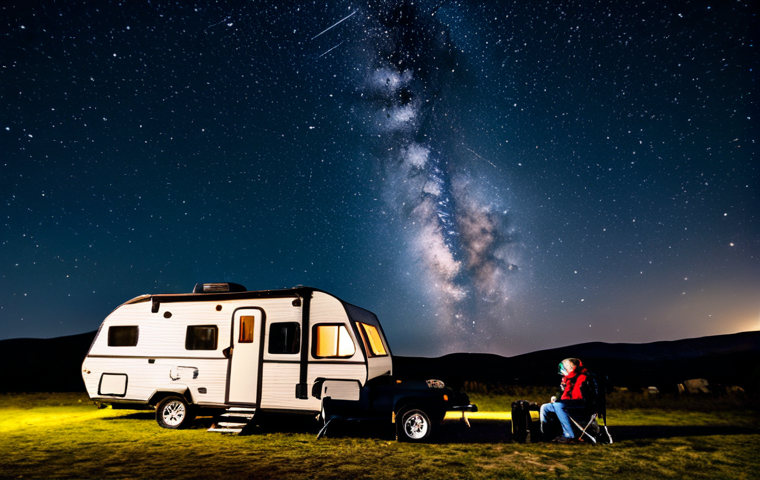
Do you crave a fully equipped kitchen, a spacious bathroom, and a separate sleeping area? Or are you happy with a more minimalist setup? Consider what features are essential for *your* comfort and enjoyment. For example, if you plan on doing a lot of boondocking (camping without hookups), you’ll want to prioritize features like solar panels, a large water tank, and a composting toilet. On the other hand, if you’ll primarily be staying at campgrounds with full hookups, you might be able to get away with a simpler trailer. Personally, I can’t live without a decent-sized fridge and a comfortable bed. After a long day of hiking, there’s nothing better than a cold drink and a good night’s sleep!
Essential Gear and Gadgets for a Smooth Trip
Packing for a trailer camping trip is an art. You want to be prepared for anything, but you also don’t want to overload your trailer. I’ve learned this the hard way! One trip, I packed so much stuff that I ended up having to leave some things behind at a campground. Now, I always make a checklist and try to stick to the essentials.
Must-Have Safety Equipment
This isn’t just about convenience – it’s about safety. Make sure you have a properly functioning fire extinguisher, a carbon monoxide detector, a first-aid kit, and a roadside emergency kit. It is also wise to invest in tire pressure monitoring system (TPMS) – I know that sounds super techy, but it’s a life-saver. Nothing ruins a camping trip faster than a flat tire on a deserted road.
Setting Up Your Campsite Like a Pro
Okay, so you’ve arrived, now what? Get yourself some leveling blocks, wheel chocks, and a good quality surge protector. Leveling your trailer is crucial for comfort (nobody wants to sleep on a slant!), and wheel chocks will keep it from rolling away. A surge protector will protect your electrical system from power surges at the campground. Don’t forget about the little things either: a good water hose, sewer hose, and adapters for different hookups.
Finding the Perfect Campsite: Location, Location, Location
Half the fun of trailer camping is discovering amazing new places to set up camp. But with so many options out there, how do you choose the perfect spot? This really depends on what kind of experience you’re looking for.
Exploring National Parks and Forests
National Parks and Forests offer stunning scenery and a wealth of outdoor activities. But they also tend to be crowded, especially during peak season. Reservations are usually essential, often months in advance. If you’re planning a trip to a popular park like Yosemite or Yellowstone, be prepared to book well ahead of time. The good news is, the infrastructure is usually pretty well maintained – expect good roads, marked trails, and decent facilities.
Boondocking and Dispersed Camping
For a more secluded and off-the-beaten-path experience, consider boondocking or dispersed camping on public lands. This type of camping is usually free, but it also comes with some challenges. You’ll need to be completely self-sufficient, as there are no hookups or amenities. This means bringing your own water, power, and waste disposal. It’s also important to be aware of any restrictions or regulations in the area. Always check with the local land management agency before heading out. For example, some areas may require a permit for dispersed camping, or they may have restrictions on campfires.
Cooking and Dining on the Road
Just because you’re on the road doesn’t mean you have to live on fast food and granola bars. With a little planning and the right gear, you can enjoy delicious and healthy meals while trailer camping. I actually find cooking outdoors to be one of the most enjoyable parts of the experience.
Equipping Your Mobile Kitchen
A portable propane stove, a cast-iron skillet, and a good cooler are essential for cooking on the road. I also recommend investing in a set of nesting pots and pans to save space. If you have room, a small grill can be a great addition for cooking burgers, steaks, or veggies. Don’t forget the basics like utensils, plates, cups, and a cutting board. I also always bring a few sharp knives – dull knives are a recipe for disaster in the kitchen.
Simple and Delicious Camping Recipes
Think one-pot meals, foil packet dinners, and campfire cooking. Chili, stews, and pasta dishes are all great options for camping. Foil packet meals are incredibly easy – just toss some veggies, protein, and spices into a foil packet and cook it over the campfire. For breakfast, I love making pancakes or scrambled eggs on my portable stove. And of course, no camping trip is complete without s’mores! Remember to keep it simple and focus on recipes that don’t require a lot of ingredients or complicated equipment.
Staying Connected (or Disconnected) on the Road
In today’s world, staying connected can be a challenge, especially when you’re out in the wilderness. But sometimes, disconnecting is exactly what you need to recharge and reconnect with nature. It’s a choice everyone needs to make.
Navigating the Digital Divide
Many campgrounds offer Wi-Fi, but the quality can be spotty, especially during peak hours. If you need reliable internet access, consider investing in a mobile hotspot or a cellular booster. These devices can significantly improve your connectivity in remote areas. However, be aware that even with these tools, there will be times when you’re completely off the grid. This can be a great opportunity to unplug and enjoy the peace and quiet of nature.
Embracing the Digital Detox
Leave the phone at home, grab a book, and actually talk to your family and friends face-to-face. You might be surprised at how much you enjoy it. I know it can be tough at first, especially if you’re used to being constantly connected. But trust me, the benefits of disconnecting are well worth it. You’ll feel more relaxed, more present, and more connected to the world around you.
Maintaining and Repairing Your Trailer on the Go
Trailer ownership comes with responsibility, and that includes performing regular maintenance and repairs. A little bit of preventative maintenance can save you a lot of headaches (and money) down the road.
Essential Maintenance Tasks
Check your tires regularly, lubricate your axles, and inspect your brakes. It’s also a good idea to inspect the roof of your trailer for any signs of leaks or damage. Small repairs can prevent bigger problems down the line. Don’t neglect the interior, either. Keep your appliances clean and well-maintained, and check for any signs of water damage. Prevention is key.
Basic Repair Skills and Tools
Learn how to change a tire, troubleshoot electrical problems, and repair minor plumbing leaks. A basic tool kit should include a socket set, a wrench set, a screwdriver set, a multimeter, and a roll of duct tape. With a little knowledge and the right tools, you can handle many common repairs yourself. However, don’t be afraid to call a professional if you’re dealing with a complex or dangerous situation.
Here is a handy table with essential maintenance tasks:
| Task | Frequency | Notes |
|---|---|---|
| Tire Inspection | Before each trip | Check for wear and tear, proper inflation |
| Axle Lubrication | Every 6 months or 6,000 miles | Use the correct type of grease |
| Brake Inspection | Annually | Check brake pads, rotors, and brake lines |
| Roof Inspection | Twice a year | Check for leaks, cracks, or damage |
| Appliance Maintenance | As needed | Clean and inspect appliances regularly |
Making Memories that Last a Lifetime
Trailer camping is more than just a vacation – it’s an opportunity to create lasting memories with your loved ones. It’s about unplugging from the everyday grind, exploring new places, and reconnecting with nature.
Enjoying Quality Time with Family and Friends
Play games, tell stories around the campfire, and explore the outdoors together. Trailer camping provides a unique opportunity to bond with your family and friends in a relaxed and informal setting. Leave the electronics behind and focus on spending quality time together. You will be grateful for these moments in the future.
Capturing the Moments: Photography and Journaling
Take lots of pictures and write down your experiences in a journal. These memories will become even more precious as time goes by. Years from now, you’ll be able to look back on your camping trips and relive the adventures all over again. Trust me, you won’t regret taking the time to document your experiences. The sights, the sounds, the smells, and the feeling of being out in nature – these are all things that you’ll want to remember.
In Conclusion
Trailer camping opens the door to unforgettable experiences, blending adventure with the comforts of home. By choosing the right trailer, packing smart, and prioritizing safety, you’re set for incredible journeys. Cherish the moments, embrace the freedom, and create memories that will last a lifetime.
Useful Information
1. Consider joining a trailer camping club or online forum for tips and advice from experienced campers.
2. Always check the weather forecast before heading out and pack accordingly.
3. Familiarize yourself with common camping etiquette, such as respecting quiet hours and leaving your campsite clean.
4. Take a first-aid and CPR course to be prepared for medical emergencies.
5. Don’t forget to bring insect repellent and sunscreen!
Key Takeaways
Choosing the right trailer and essential gear is crucial for a comfortable and safe trip.
Planning your campsite and meals ahead of time can enhance your camping experience.
Maintaining your trailer and knowing basic repair skills can prevent unexpected issues.
Remember to disconnect from technology and embrace the natural surroundings.
Most importantly, cherish the time spent with loved ones and create lasting memories.
Frequently Asked Questions (FAQ) 📖
Q: What kind of trailer is best for a beginner like me?
A: Honestly, it totally depends on your budget, tow vehicle, and how many people you’re planning to camp with. If you’re just starting out and driving a smaller SUV, a lightweight pop-up camper or a small travel trailer (think around 16-20 feet) might be a good fit.
They’re easier to tow and maneuver. But if you’ve got a beefy truck and a bigger family, you could consider a larger travel trailer with all the bells and whistles.
I’d suggest hitting up a few RV dealerships and walking through different models to get a feel for what you need and what you can live without. Don’t be afraid to ask tons of questions!
Q: Is trailer camping really that expensive?
A: Okay, let’s be real, the initial investment can be a bit of a sting. Trailers range wildly in price. But think of it this way: you’re essentially buying a mini-vacation home.
Beyond the trailer itself, you’ll need to factor in things like registration fees, insurance, potentially a new hitch, and of course, campsite fees. However, if you compare it to the cost of hotel stays and eating out every meal on a traditional vacation, trailer camping can actually save you money in the long run.
Plus, you get the added bonus of exploring at your own pace and cooking your own food. I usually pack a cooler full of easy-to-cook meals and snacks to keep costs down.
Q: Where are some good places to go trailer camping?
A: Oh, the possibilities are endless! National Parks are always a classic choice, but they can book up months in advance. I personally love finding state parks – they’re often less crowded and offer stunning scenery.
Websites like Recreation.gov and ReserveAmerica are your best friends for finding campsites and making reservations. Also, don’t overlook private campgrounds.
They sometimes have extra amenities like swimming pools and playgrounds, which can be a hit with the kids. Last summer, I stumbled upon a hidden gem of a campground nestled in the Smoky Mountains, and it was absolutely breathtaking.
Pro tip: read reviews before you book! They can give you a heads-up about things like noisy neighbors or spotty cell service.
📚 References
Wikipedia Encyclopedia
구글 검색 결과
구글 검색 결과
구글 검색 결과
구글 검색 결과
구글 검색 결과
